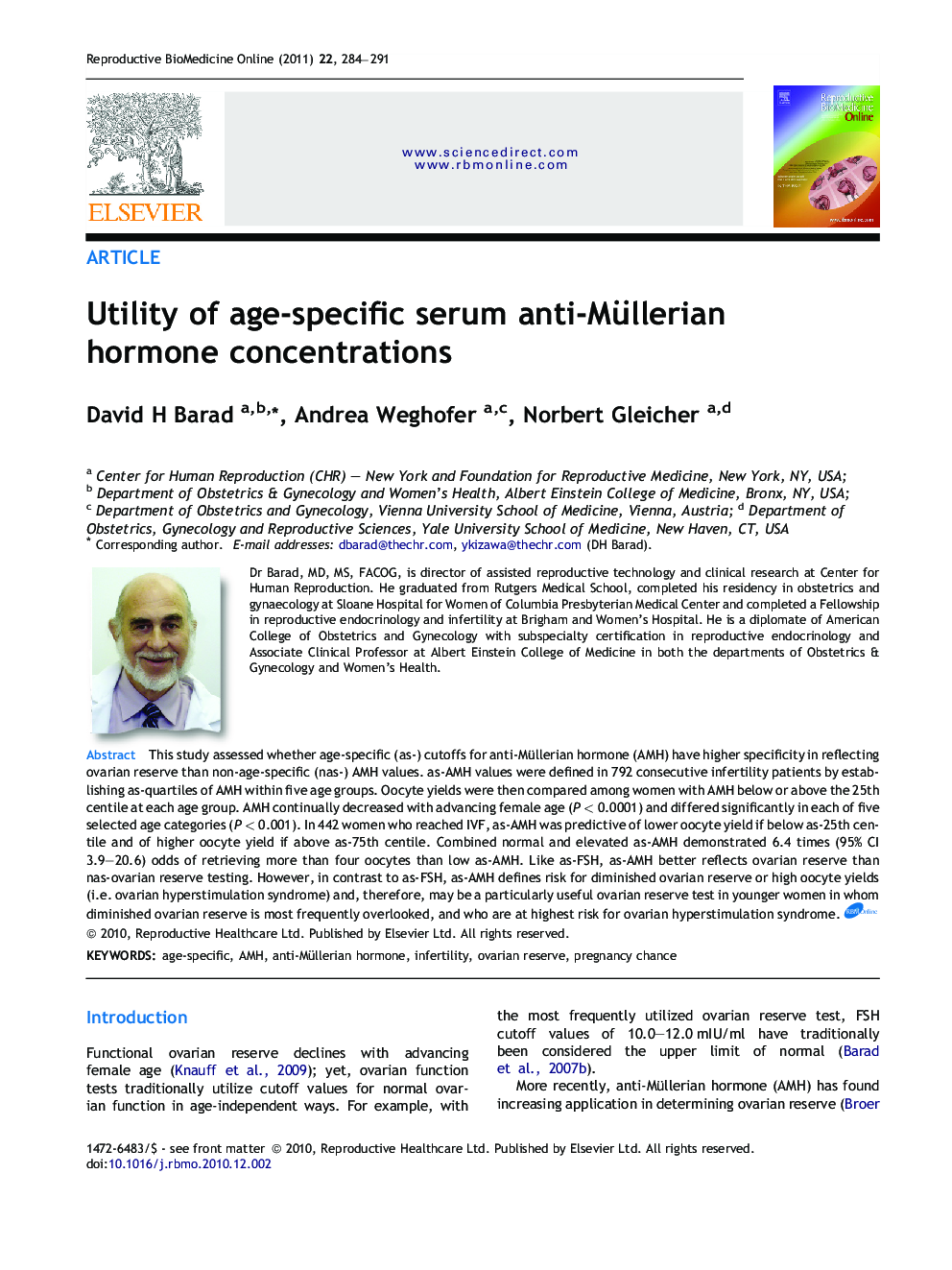| Article ID | Journal | Published Year | Pages | File Type |
|---|---|---|---|---|
| 3970681 | Reproductive BioMedicine Online | 2011 | 8 Pages |
Abstract
Anti-Müllerian hormone (AMH) is increasingly recognized for better specificity in reflecting ovarian reserve than FSH. Like FSH, AMH changes with advancing female age. Normal concentrations should, therefore, vary at different female ages. We, therefore, established age-specific (as-) AMH concentrations in five age groups and investigated whether oocyte number, obtained at IVF, differed on the basis of whether a patient's as-AMH was in the normal as-range or below or above it. AMH demonstrated, once again, its better specificity in comparison to FSH by showing narrower normal ranges at all ages. Moreover, as-AMH allowed for discrimination of oocyte yields at all ages. This study confirms AMH as a consistent predictor of ovarian response. Moreover, AMH has the additional advantage of not only being able to predict diminished ovarian reserve and low oocyte yields but also high oocyte yields, and possible risk for polycystic ovarian syndrome and ovarian hyperstimulation syndrome. It, therefore, appears particularly suitable in the investigation of ovarian reserve in younger women.
Related Topics
Health Sciences
Medicine and Dentistry
Obstetrics, Gynecology and Women's Health
Authors
David H. Barad, Andrea Weghofer, Norbert Gleicher,
